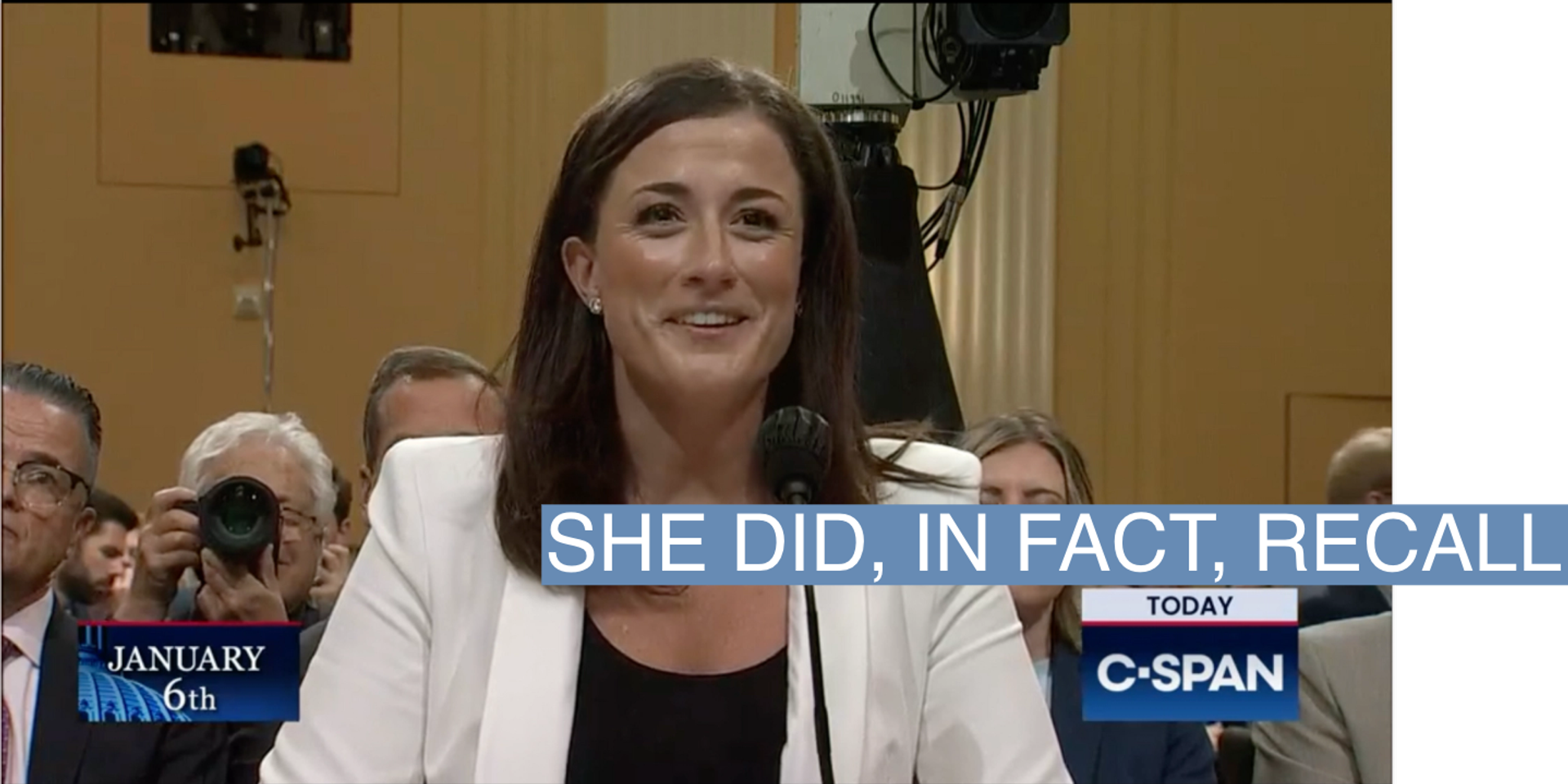The News

The story of Cassidy Hutchinson, the former White House aide who delivered explosive public testimony to the Jan. 6 select committee over the summer, took another dramatic turn Thursday, when the panel released new transcripts revealing that a Trump-connected lawyer seemingly tried to muffle her participation in the investigation.
Cassidy told the committee in September that as she prepared to testify, she was initially represented by Stefan Passantino, who served as an ethics lawyer in the Trump White House. She said Passantino urged her to downplay her memory of events leading up to the Capitol riot, and lean on the phrase “I do not recall” when she didn’t remember every detail.
“We just want to focus on protecting the President. We all know you’re loyal. Let’s just get you in and out, and this day will be easy, I promise,” Hutchinson recalled Passantino saying ahead of her first closed-door interview with the panel, according to the transcript unveiled on Thursday.
Hutchinson also said that Passantino tried to hook her up with job opportunities — some of them connected to the former president’s circle — and at one point suggested her legal bills were being paid by “Trump world.” At the same time, however, Hutchinson told the committee that Passantino “never” told her “to lie.”
The revelations have prompted a new question: Could Passantino face legal repercussions for his actions? We spoke to two lawyers about the developments, who had differing opinions on whether his actions might have constituted obstruction of justice.
“I have no doubt that if you can prove what he did, I would say you could easily charge him with obstruction of justice,” Bennett Gershman, a law professor at Pace University and former prosecutor in the New York State Anti-Corruption Office, said. “What Cassidy describes is a lawyer’s way of accomplishing his objective and trying to cover himself. The lawyer in effect is counseling a client to avoid telling the truth.”
Jack Sharman, a white collar defense attorney who served as special counsel to the House for the Whitewater investigation, was more doubtful.
Sharman told Semafor that “obstruction statutes require some kind of level of wrongful or corrupt intent,” meaning it would require more investigation and evidence for the Justice Department to make any case.
“It could be terrible legal advice, but not a crime because an advice giver is incompetent, rather than corrupt,” Sharman said. He also said that the Justice Department would be sensitive about basing a charge on advice given by a lawyer to their client, given attorney-client privilege.
Passantino could still face other consequences, such as potential disbarment, both lawyers who spoke to Semafor said — though Sharman noted that the D.C. Bar would require an official complaint to act.
Passantino told media outlets in a statement that he represented Hutchinson “honorably, ethically, and fully consistent with her sole interests as she communicated them to me.” He is currently on a leave of absence from his firm, Michael Best.